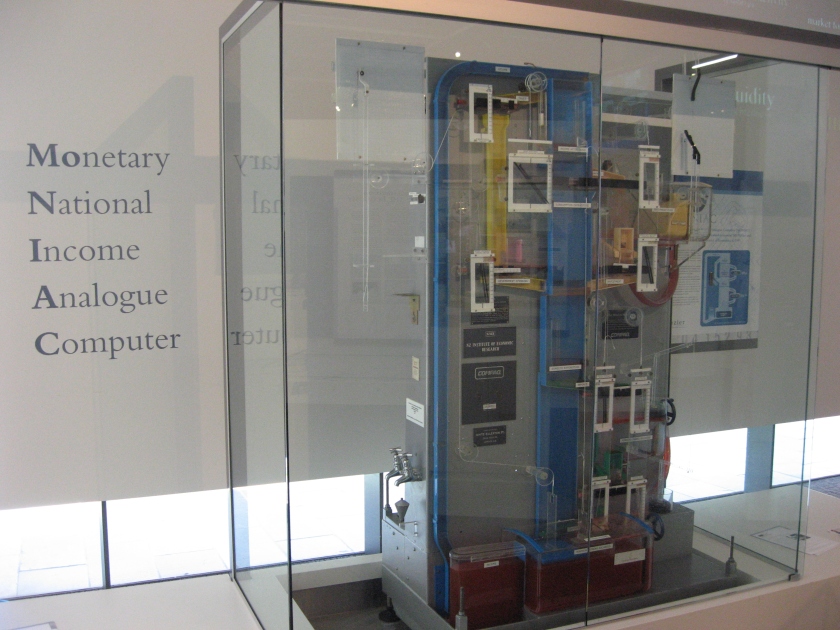Friday, 9/23
8:30AM – Arrival, Light Breakfast
9:00AM – Welcome
9:10AM – The Politics of Planning and Modeling “the Economy” (Part 1)
- Thomas Angeletti, “The Laboratory of the French Economy”
- Verena Halsmayer, “The Economy as a System of Capital Flows: Assembling and Computing Input-Output Tables at the Harvard Economic Research Project”
- Onur Ozgode, “The Construction of Systemic Risk as a Pathology of Monetary Government: How the Federal Reserve Came to Govern the Economy at the Limits of Neoliberalism”
- Discussant: Sophus Reinert
11:05AM – The National and the International
- Jamie Martin, “How Did Postwar Planners Think of the ‘World Economy?’ The Forgotten Efforts of 1940-1943”
- Colin Danby, “Discovering Economies in British Africa “
- Alden Young, “‘The Nation-State Alone Cannot Transform Its Destiny’”
- Discussant: David Armitage
12:45PM – Lunch
2:00PM – Formalizations of the Economic
- Yahya Madra, “Auction or Selection? Two Competing (Neoclassical) Metaphors for ‘The Economy’”
- Philippe Steiner, “Economy as Matching”
- Till Düppe, “Economic Consciousness: Four Historical Considerations”
- Rachel Knecht, “‘All Arithmetic Should Be Practical’: Calculating Rationality in Antebellum America”
- Discussant: Christine Desan
4:00PM – Break
4:15PM – The Economic, Incentives, Rationality
- Justin Douglas, Bretton Fosbrook, & Kira Lussier, “The Art of Corporate Governing in the Postwar Period”
- Daniel Breslau, “Household Marketization and the End of the Economy”
- Guus Dix, “Incentivizable Man: The Emergence of Incentivization as a New Modality of Power, 1886–1920 (and Beyond)”
- Martha Lampland, “Monetary Imaginaries in Inflationary Times”
- Discussant: Laura Sawyer
Saturday, 9/24
8:30AM – Arrival, Light Breakfast
9:00AM – The Politics of Planning and Modeling “the Economy” (Part 2)
- Nikhil Menon, “Knowing Through Numbers: Planning, Statistics, and Defining the Indian Economy”
- Adam Leeds, “On the Socialist Origins of the Capitalist ‘Economy’”
- Dan Hirschman, “Managing the Economy in Real Time”
- Discussant: Timothy Mitchell
10:55AM – Formatting National Economic Space
- Hannah Appel, “Toward an Ethnography of ‘the Economy’”
- Tripp Rebrovick, “‘The Market is Not The Economy’: Regimes of Sight and the Constitution of Economic Knowledge”
- Margaret Schabas,”Concepts of the Economy in Eighteenth-Century French and British Economic Thought”
- Discussant: Quinn Slobodian
12:40PM – Presentation by Thomas Vass of the INET Young Scholars Initiative
12:50PM – Lunch
2:00PM – The Public Life of “The Economy”
- Allegra Giovine, “Fantasies and Fallacies of Fortune: Visions of Burma’s Colonial Economy c.1900-1937”
- Melissa Teixeira, “The Popular and the Political Economy: The Case of Brazil’s Estado Novo (1937-1945)”
- Tim Shenk, “The Political Origins of the American Economy”
- Soo-Young Kim, “Of Pensions and Projections: How the Future Constitutes the Economy in Greece”
- Discussant: Samuel Moyn
4:00PM – Break
4:15PM – The Economical and the Natural
- Chris Jones, “The Disappearing Natural World: Genealogies of Economics, Growth, and Abstraction”
- Alyssa Battistoni, “The Economy of Nature: Whole Earth Economics and the Disappearance of the Outside”
- Richard Lane, “Finding the Absolute Reason for Growth: How the 1952 Paley Commission Conceptualised Scarcity and Reframed the Growth of the Economy”
- Discussant: Lukas Rieppel
This workshop could not have taken place without the generous support of the following programs:
- History of Economics Society’s New Initiatives program
- The Institute for New Economic Thinking’s Young Scholars Initiative
- The Harvard Institute for Global Law and Policy
- The Harvard Program on the Study of Capitalism
- The Harvard Law School Legal History Workshop
Thanks are due to the Harvard Academy for International and Area Studies for administrative support. Thanks Bruce and Kathleen!

